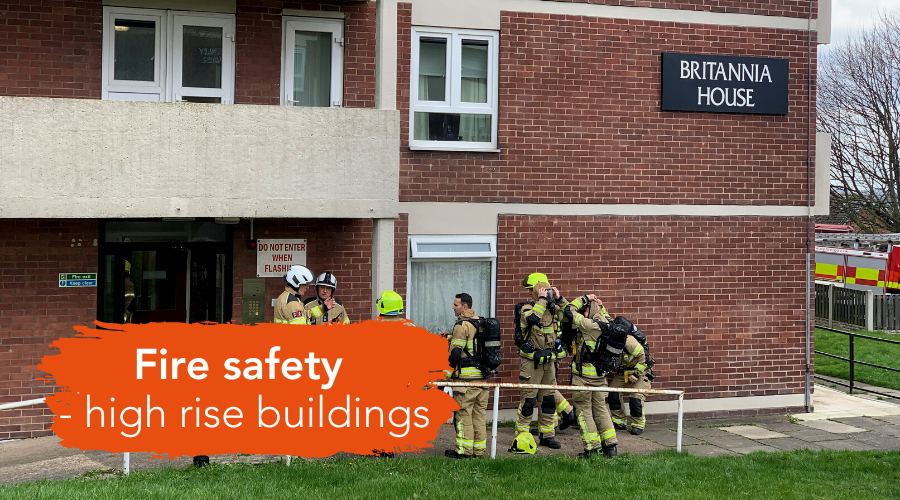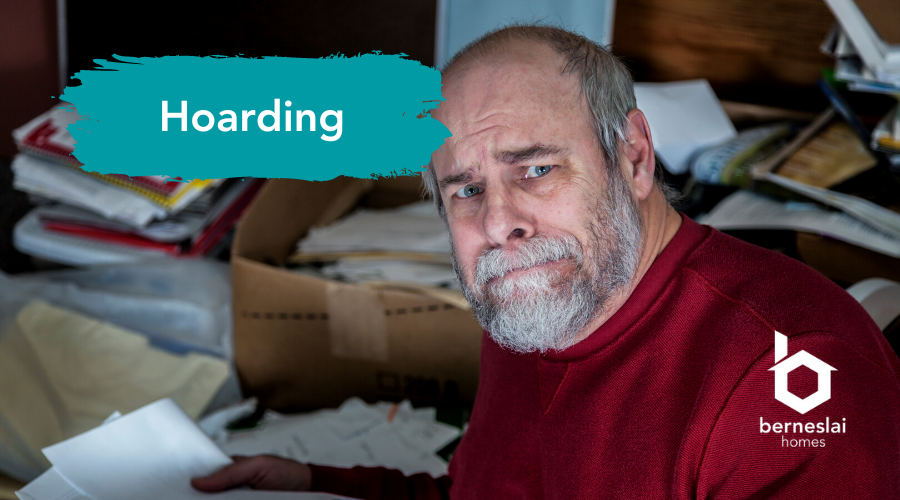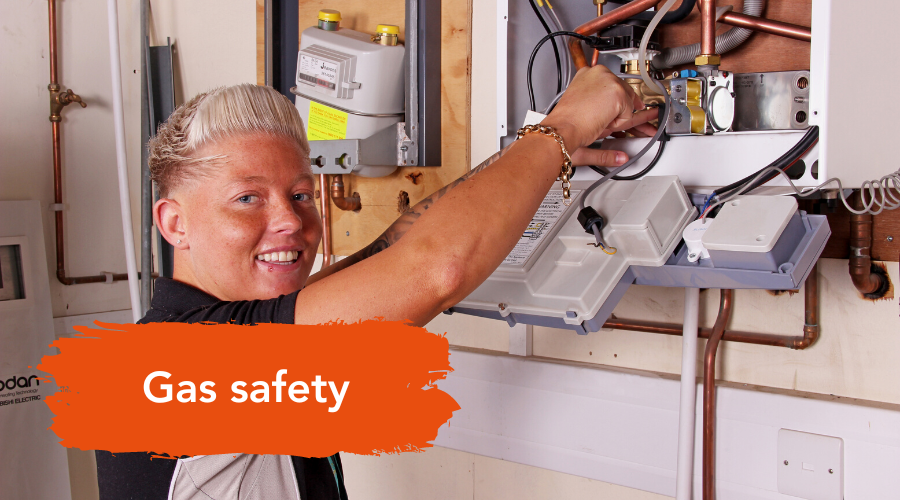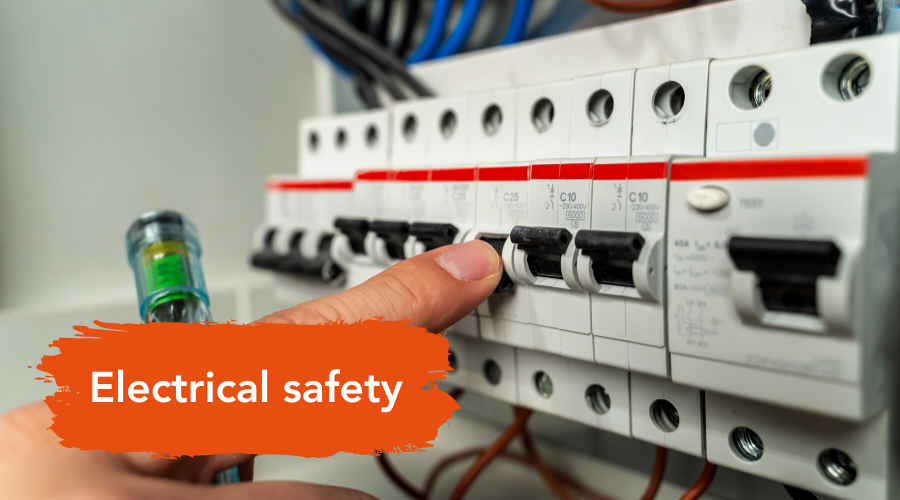Fire safety
What should I do if there's a fire in my home?
- Let everyone in your home know that there’s a smoke alarm going off and make your way to your escape route
- Close the fire doors behind you to stop the fire from spreading
- Crawl along the floor if there’s smoke – the air will be clearer
- Once you’re safe outside, call 999 for the fire service
Fire safety in the home
We have a legal duty to make sure a fire risk assessment is carried out to identify and remove any fire risks and hazards, or to reduce these as far as possible.
Communal Berneslai Homes properties have an up to date fire risk assessment completed by an independent qualified assessor. These are reviewed regularly, and you can request a copy of one for your building.
Here are some steps you can take to reduce the risk of fire in your home.
General
- Test your smoke alarms regularly
- Plan an escape route from every room and make sure everyone in the home knows how to get out in the event of a fire
- Keep your home tidy and access to doors and windows clear*
In the kitchen
- Never leave cooking unattended
- Double check that your oven, hob, and grill are switched off when you’ve finished cooking
- Keep the oven, hob, and grill clean - a build up of fat and grease can easily catch fire
- Keep things like matches, lighters, and hot pans out of the reach of children
- Avoid cooking if you’re tired, have been drinking alcohol, or you’re taking medication that might make you drowsy
Electrical appliances and heaters
- Don’t overload electric sockets
- Don’t charge things like e-scooters, mobile phones, tablets, and e-cigs overnight or longer than the recommended charging time (see below)
- Only ever charge electrics with chargers provided by the manufacturer
- Keep clothes well away from heaters and fires
- Flammable liquids such as petroleum should not be used or stored in Berneslai Homes properties
- Read more about electrical safety here
* If you, or someone you know is struggling with hoarding, support is available. See below.
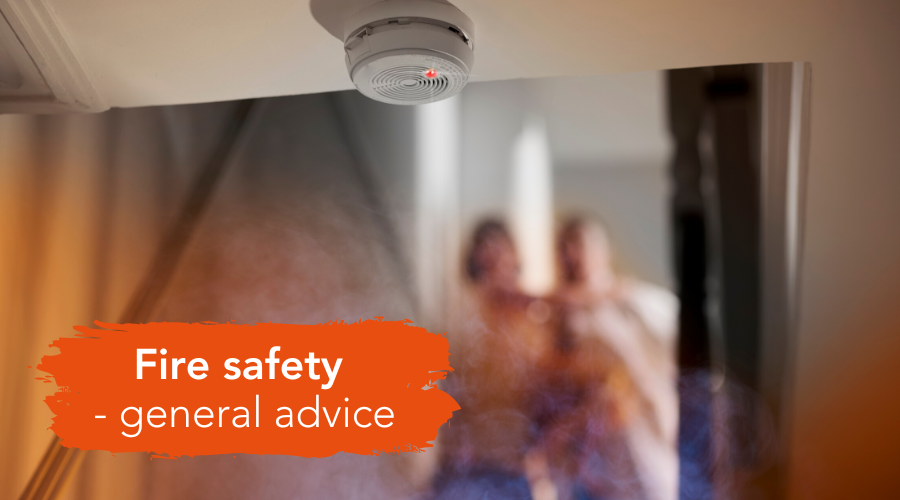
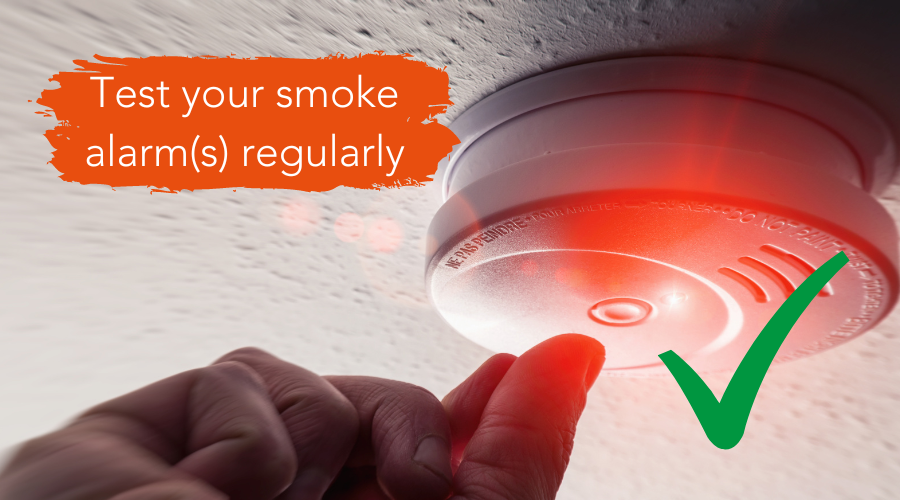
Test your alarms every week
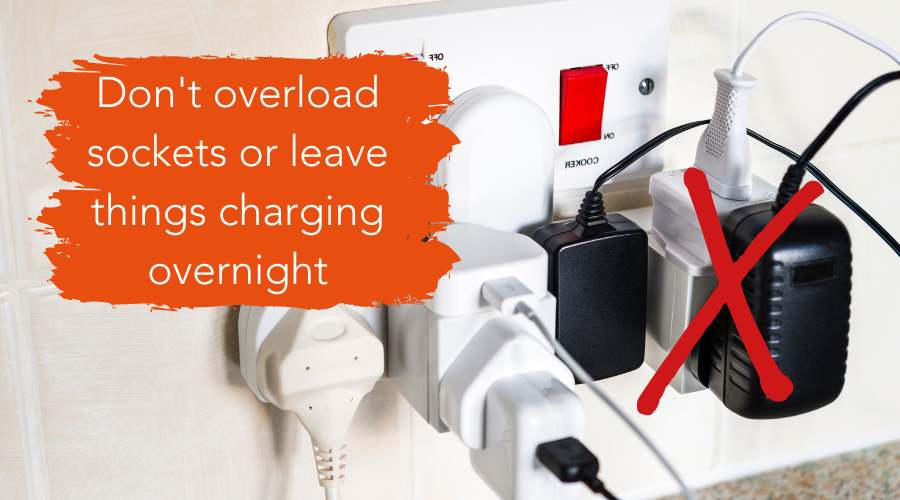
Don't overload your sockets
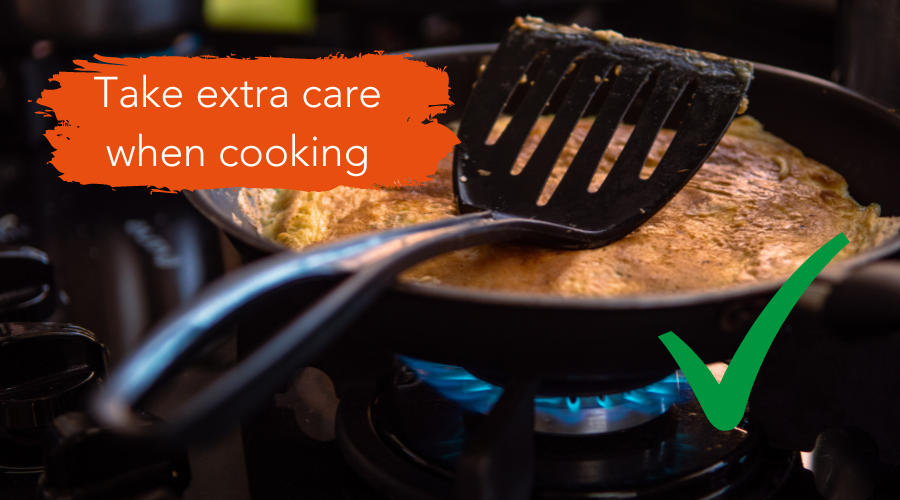
Take extra care in the kitchen
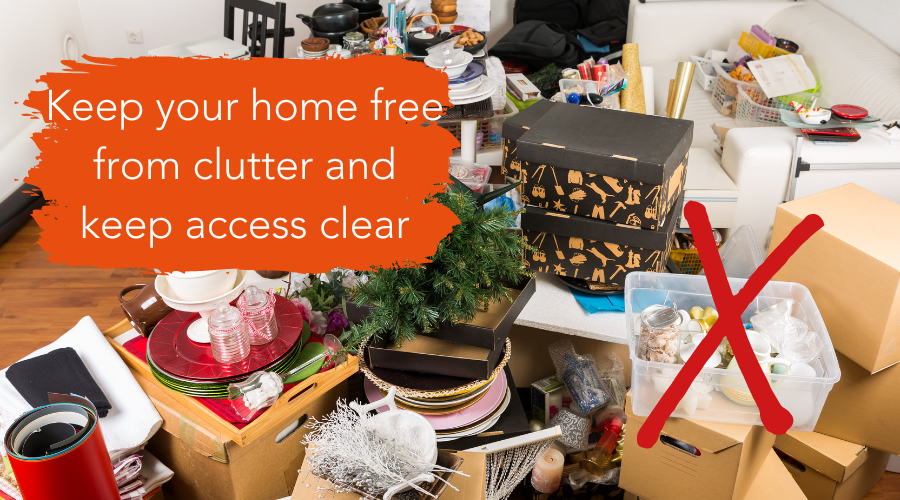
Avoid clutter and blocked access
Prepare an escape plan
We hope you'll never experience a fire in your home, but it's good to be prepared in the event of an emergency.
Think about how you would get out of the property in the event of a fire. Your escape plan is usually your normal way out of the house, so keep those exits clear. Make sure everyone else in your household knows what the escape plan is.
Keep doors and windows clear where everyone can get to them.
Keep fire doors closed as they help to slow down the spread of the fire and give you extra time to get out.
Carbon monoxide (CO) and smoke alarms
As your landlord, we’re required to install a CO alarm in each room containing a fossil fuel burning appliance (excluding gas cookers) and a smoke alarm on each floor of a property. All Berneslai Homes properties are fitted with carbon monoxide (CO) and smoke alarms.
How to test your smoke and carbon monoxide alarms
It’s important that you test your smoke and carbon monoxide alarms to make sure that they’re working properly.
The easiest way to test an alarm is to press the button on it so that the alarm goes off. If it makes a noise and sounds like an alarm, then you know it’s working correctly.
Test your alarms at least once a month (we recommend weekly) to make sure they’re working. If you don’t think they’re working properly, then please give us a call on 01226 787878 so we can replace them for you.
Fire risks caused by hoarding
Hoarding can significantly increase the chances of having a fire which can lead to serious injuries and damage to property.
Hoarding can make it much harder to escape a fire, where fire exits are blocked by large amounts of clutter and can also increase the speed at which fire spreads.
- Fire can spread quicker
- Smoke can develop and fill a house much quicker
- Escape routes can be blocked – making it harder to get out
- Hoarded materials that are flammable increase the risk of a fire starting
- It’s much harder for firefighters to search a property and find people inside
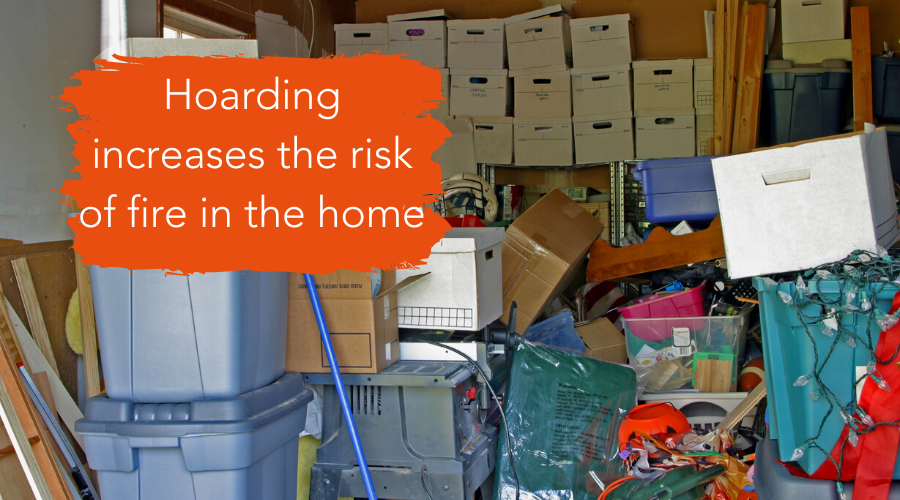
Person-centred fire risk assessment
Berneslai Homes can carry out a person-centred fire risk assessment in your home, which will identify any risks and provide fire safety and best practice advice to minimise a fire occurring in your home.
These are carried out for tenants considered to be at higher risk should a fire break out in their home, including tenants with a disability or physical impairment, who are hearing impaired, hoarding, heavy smokers, and so on.
If you feel you would benefit from this, you can call 01226 787878 and ask to speak with the Fire Safety Officer or email firesafety@berneslaihomes.co.uk
You can also contact your Neighbourhood Officer or South Yorkshire Fire and Rescue directly.
Electric scooters and e-bikes – charging batteries and maintenance
Like all electrical items, mobility scooters, e-bikes and e-scooters with a lithium battery can cause a fire risk. If the batteries become damaged or begin to fail, they can start fires that spread quickly out of control.
You can reduce the risk of a lithium battery catching fire by:
- Charging your batteries safely
- Spotting the warning signs that a battery might be dangerous
When charging lithium batteries:
- Don’t block your exit with charging batteries, mobility scooters, e-bikes, or e-scooters - keep your exit route clear at all times
- Never leave your battery to charge when you’re out or asleep
- Make sure your battery and charger meet UK safety standards
- Use the correct charger for your battery and only buy from a reputable seller
- Let your battery cool before charging it
- Unplug your charger once the battery has charged
- Check the smoke alarms in the area where you charge your batteries
- Know the warning signs that your battery might be failing and becoming a fire risk (see below)
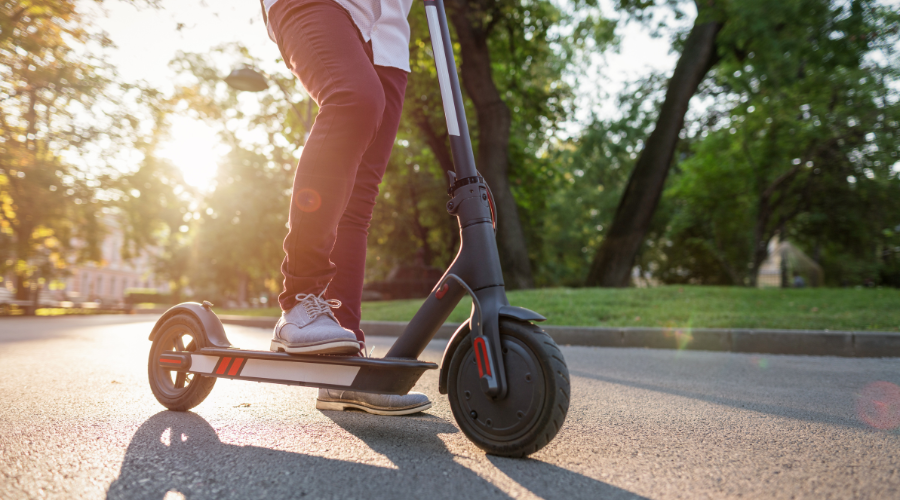
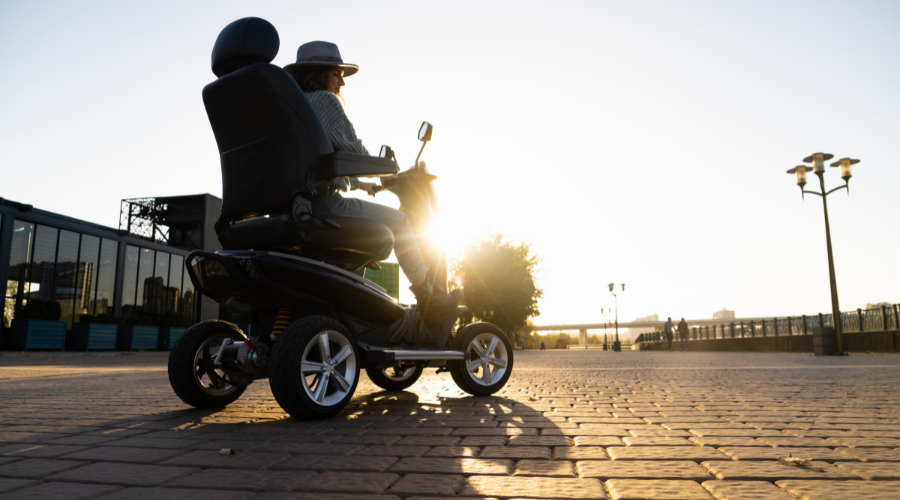
Before a failing lithium battery catches fire, there are often a few warning signs. If you see any of these signs you'll need to take immediate action to stay safe and reduce the risk of fire:
- Heat - it’s normal for batteries to generate some heat when charging or in use but if the battery feels extremely hot to the touch it might be damaged
- Bulging - a battery bulging or swelling out of shape is a common sign of it failing - if your battery looks swollen, has any lumps, or is leaking - you should stop using it immediately
- Noise - failing lithium batteries have also been reported to make hissing or cracking sounds
- Smell - a strong or unusual smell coming from the battery could also be a sign of it failing
- Performance - a failure to fully charge or longer charge times can be a sign that your battery is failing
- Smoke - if your battery or device is smoking, a fire has already started
What you should do if your lithium battery is a fire risk
If your battery shows any of these signs of failing, immediately turn off the device and unplug it from the power source.
Call the device manufacturer or retailer for further instructions. If the device starts smoking or catches fire, raise the alarm, get out, stay out and call 999 immediately.
Disposing of a lithium battery
Lithium batteries shouldn’t be placed in your wheelie bin or communal bin due to the fire risk they pose. Instead you should dispose of them safely at your local household waste recycling centres.
In our independent living schemes
We have specific guidance for residents living in our independent living schemes:
- Mobility scooters should be recharged within the designated charging area and should be charged according to the manufacturer’s instructions.
- Recharging should only be carried out during daytime hours and not overnight.
- The scooter store should not be used for charging up of any other personal items, such as laptops or mobile phones
- All scooters must have an up-to-date Portable Appliance Test (PAT test) to ensure that the charging equipment is in good condition. The PAT test will be carried out by Berneslai Homes on an annual basis. Residents must make sure that the equipment is available for testing when notified of the date.
- If any equipment fails the PAT test, it will be the scooter owner’s responsibility to repair/replace the damaged item before it can be used again.
- Residents must ensure that the scooter is serviced and maintained regularly, and this is the responsibility of the scooter owner.
